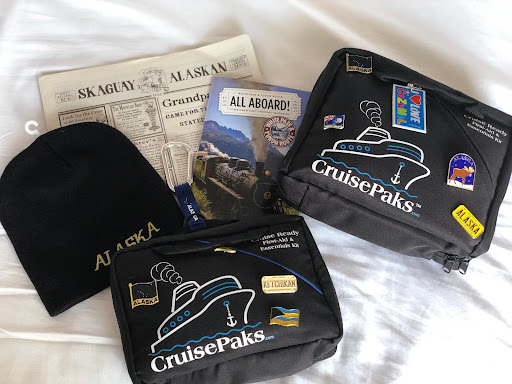When you onboard a boat, you join a large group of individuals of almost all ages who would be spending a number of days, or a week, or more together. Your community on a cruise ship transporting hundreds of passengers and workers may be the extent of a mini-town or even a mini-metropolis. The Cruise lines hire physicians and on-duty nurses who work out of a medical facility to manage any health concerns that arise in this floating metropolis. There are a listed must have items for a cruise and travel first aid kit is one of the most important in the cruise packing essentials.
To be precise, the boarding medical installation is not a hospital; rather, it is similar to a local health center or moving medical care unit. The working professionals, there have emergency medicine expertise and the tools to stabilize any patient even in the most catastrophic of conditions. They handle injured ankles, seasickness, upset stomachs, and folks who have neglected to carry any cruise essentials like travel kit medicine.

With the sudden burst of this pandemic, these medical professionals are also handling COVID-19 testing and care, which includes isolating and quarantining any visitors or staff who tested positive onboard or in the sea. In certain circumstances, cruise companies have added more people and established distinct facilities for these responsibilities, in addition to establishing new medical personnel needs. For example, Royal Caribbean now demands all of its physicians be trained in compulsory respiratory sickness and had introduced a disease control officer who monitors the line’s medical control plan for every ship.
If you are entitled to an emergency aboard the cruise ship, then you may summon assistance by pressing a switch on the stateroom phone – the same as dialing any emergency contact phone number. You can pay a visit to the medical center during specified office hours for mild illnesses.
How are the medical professionals appointed on the cruise?
The Physicians appointed by the State/Central Government, in collaboration with the International Association of Cruise Lines, establish tight requirements for who handles patients aboard ships sailing from their country, in addition to the recommendations for medical facilities. For international cruises, the same authorities are engaged. All of the medical personnel are both experienced and certified.
Physicians appointed on a cruise must have three years of post-graduate/post-registration medical experience in general medicine and emergency treatment, or be board approved in emergency therapy, internal medicine, or family medicine according to medical standards. Staff must also be having licensed medical specialized training or advanced life support certification in provinces such as emergency medicine, anesthesia, and critical care.
The ships transporting children under the age of 12 must have at least one senior physician with pediatric training or similar emergency training for minors. A travel kit medicine might be of grave importance during travelling with minors in case of any emergency.
Nurses’ training requirements are likewise fairly comprehensive. One of the available nurses abroad is usually a certified paramedic. All of the other nurses are mostly experienced and registered nurses.
The medical crew varies according to ship size, although most ships contain a doctor who had qualified and been appointed by authorities and at least a couple of nurses accompanying the doctor. Two physicians and around five to six nurses may be on board the world’s largest cruise ships. River ships including the small ships that stay near shore have fewer crew members as they can quickly access health care services on land.
Worldwide recruitment firms help cruise lines discover onboard nurses and physicians. Medical workers are often hired on two- to six-month contracts on ships.
Doctors and nurses on the cruise report to the line’s headquarters, where the chief medical authority deals with emergencies on call 24 hours a day.
What can you expect from a cruise medical facility?
Medical centers aboard cruise ships are often positioned on a deck lower, away from public spots and nearest to back-crew amenities. Both travelers and the workforce are treated by the same physicians.
While the medical staff is available around the clock, most passengers attend during regular hours. Carnival Cruise Line’s facilities, for example, are open from 8 a.m to 9 a.m. and 3 a.m. to 5 p.m. on embarkation day; from 9 in the morning to noon and 3 p.m to 6 p.m. on sea days; and from 8 a.m. to 10 a.m. and 4 p.m. to 6 p.m. on port days.
In the medical facility, you’ll locate a hallway, exam rooms, and medical account forms, just as in any doctor’s office. You will only visit a separate section with a few hospital beds, a tiny surgical suite to suture the wound and additional minor procedures will be performed, or ICU / isolation wards if your medical situation warrants it.
Cardiac monitors, Defibrillators, external cardiac pacing capabilities, oxygen tanks, ventilators, x-ray machines, and various other lab equipment are all available in naval medical centers. Some lines incorporate technology, such as thrombolytic treatment (breaking down the blood clots) and also pulse oximetry on selected Carnival ships (for testing patient’s oxygen levels). Stretchers and wheelchairs will also be available.
Seasickness tablets, aspirin for general use, and other required pharmaceuticals, antibiotics, and little quantities of prescription medications, and also some emergency medications such as the medicine required for cardiac life support (advanced), are among the pharmacy supplies.
Situations of Emergency
While the majority of complaints on the cruise are familiar to the experienced physicians, the medical crew is ready to provide life support and stabilize those who are gravely unwell. Personnel skilled in medivac techniques would then normally unload the patient using a stretcher at the following dock and transport the individual to a nearby clinic.
If a severe instance happens at sea, the Coast Guard will be summoned to lift the patient from the ship by means of a boat or a helicopter.
Who generally pays for the medical care?
Unless you have your won travel kit medicine, the independently working contractors and cruise ship physicians may levy a standard hourly rate. Medication and diagnostics will incur additional costs.

All services are needed to be paid in advance and are invoiced to your onboard spending account. You will be shared the bills and receipts in order to submit them (health insurance provider) for payment. Be aware that many house insurance policies do not have protection for your traveling out of the country.
Although sickness may not be on your holiday itinerary, it is prudent to make basic medical arrangements. Onboard medical facilities are not a replacement for a hospital. If you become sick while sailing the high seas, you’ll be paying for it yourself. Most insurance coverage and Medicare do not cover medical treatment on cruise ships.
Hence, the best suggestion for your next cruise travel is to add a travel kit medicine in your list of must have items for a cruise. It can help you save a lot of money and time.